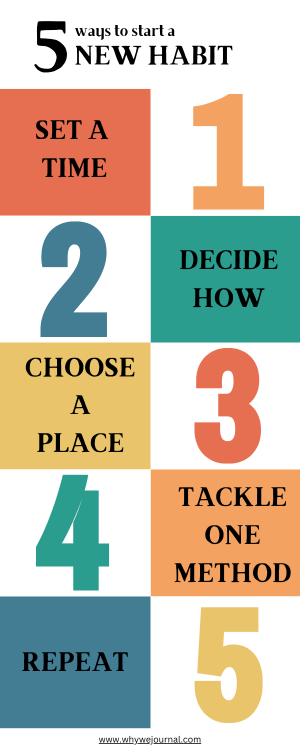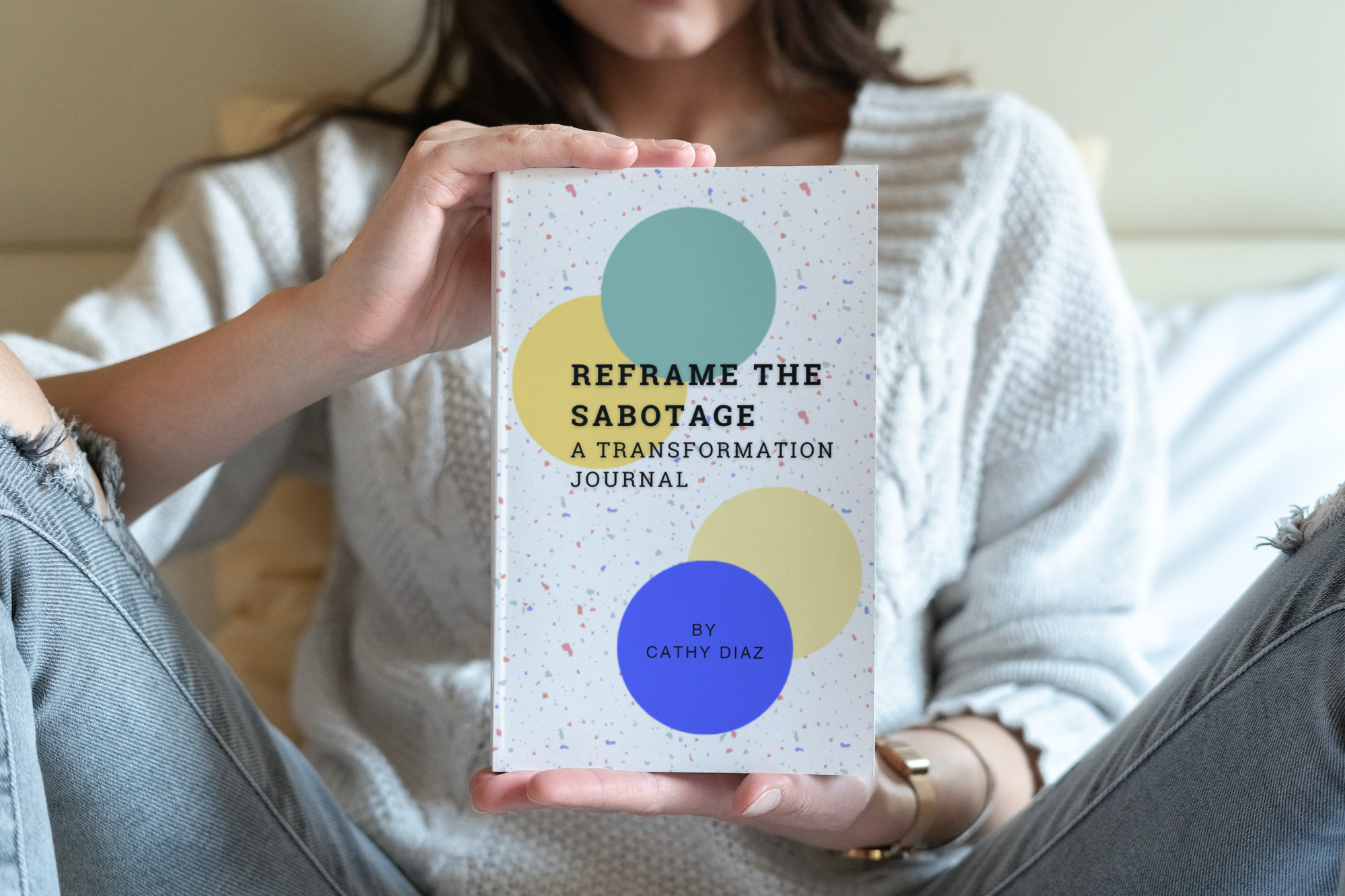Affirmation Journaling
I love affirmation journaling. It is such a powerful positivity tool that hacks negativity from the mind, and gets stronger with repeated use. Let's go over what it is, why you should do it, with supporting research, how to start affirmation journaling, and some layouts.

Hello Fellow Journalers!🖊️📖
I love affirmation journaling. It is such a powerful positivity tool that hacks negativity from the mind, and gets stronger with repeated use. Let's go over what it is, why you should do it, with supporting research, how to start affirmation journaling, and some layouts.
What is Affirmation Journaling?
Affirmation journaling is about transforming your thoughts into positive mantras of self-acceptance and self-love.
Take a look at Meriam-Webster's definition of affirm:
1) a: validate, confirm b: to state positively
2) to assert (something, such as a judgment or decree) as valid or confirmed
3) to show or express a strong belief in or dedication to (something, such as an important idea) (1)
When it comes to affirmation journaling, it's all about validation and bringing your thoughts into a space of growth, love, and positive beliefs.
Why Affirmations Help (Or 5 Reasons From Science)
What does the act of affirmation do for ourselves? When it comes to self-affirmation, research proves that it can help in six areas: stress reduction, healthier life choice, pain management, mood, and resilience.

Stress Reduction
Stress is an experience usually forced upon you. It can be stress upon your mental, psychological or physical state. Being stressed means that you're not in a state of equilibrium. It also means something is causing this intensity, and usually not you. (2) A handy by-product of self-affirmation? Stress reduction. Emotional regulation improves with affirmations, and we can extrapolate this to affirmation journaling. (3)
Greater Resilience
A study in 2016 proved that self-affirmation activated reward systems in the brain, but it also helps reinforce core values. This restoration of self helps provide a skill and pathway to greater resilience. (4)
Healthier Life Choices
Two studies found that affirmations can help reinforce healthy behaviors. Do you feel the snack monster gets you every time the hanger strikes? A 2013 study showed that fruit consumption increased with affirmation use. That's a secret weapon to battle unhelpful negative thoughts regarding one's own body image and food intake. (5)
Another study also proved that if you tailor the affirmation to a specific health concern, the outcome usually is improved healthy behaviors. (6)
Pain Management
I want to start by when you're in pain, it just sucks. You can do all the things and still be in pain. Rather than tackle the physical source of pain, let's talk about "pain catastrophizing".
Pain catastrophizing is when your bad thoughts get the better of you. That negative self-talk has taken over and life sucks so much more. I will raise my hand first that negative thinking is a shitty, shitty way to live. Don't believe me? My first journal I wrote was inspired by this. Take a look here.
But like every problem, you need a technique to exercise. Making affirmations apart of your routine and arsenal means another tool in your toolbox to combat the negative thoughts that make your pain (regardless of cause) so much worse. (7)
Mood
Are you a moody bird? There's even a supplement named this. I love my life, my family, friends, and mortgage-paying job, but yes, my moods get the best of me as well. I look in the mirror, and there is a very human face staring back.
But there's some pretty cool evidence that positive affirmations help with positive emotions. A meta-analysis—wait, let's break that down:
a quantitative statistical analysis of several separate but similar experiments or studies in order to test the pooled data for statistical significance-From Meriam Webster's Dictionary (8)
That means that several studies in one particular study, analyzed and proved positive self affirmations help enhance positive emotions. (9)

How To Start Affirmation Journaling
There are lots of ways to get started with affirmation journaling. Examples include incorporating into a pre-existing journal routine, using a guided journal of affirmations, and using pre-set layouts to anchor and inspire affirmation journaling.
Stephanie Rose, from Firefly Scout, says this on affirmation journaling:
The affirmation journaling I do is more like a personal pep talk rather than writing out lines of affirmations. I start with taking a moment to notice what part of me needs that boost so that when I write, I can pour love and encouragement right into that space and notice how it shifts as I write. Then I start by naming what fears or worries I have about it. I've learned that when we can name the things, give them some edges, we can better understand how big it really is instead of letting it permeate everything. Once I feel like I have given it an outline, then I start writing to myself about how moving through this is important to me (or not) and get closer to the bottom of why these feelings are coming up. With that clarity, I can start to pour into myself with affirmations and evidence.
Of course, writing lines of affirmations or using a guided journal for affirmations is a wonderful way to jumpstart the practice as well.
To help you with affirmation journaling, I created this 30 day challenge!

When it comes to starting a journal habit altogether, take a look at this handy guide:

Cliff notes version, here's the Why We Journal summary of how to start a journaling habit:
- Set your time of when you will journal
- Decide your best medium: writing, typing, dictation or video
- Choose your journaling hidey-hole or public space
- Tackle one journaling method to begin with
- Repeat

Another tip on affirmation journaling: use inspirational quotes. This can be from famous figures of history, sacred and religious texts, or books that speak to your soul.
Above all, believe you can.

Layouts
For those who love lurking for journal layouts, you have been rewarded. Here's some of the best layouts I've seen for affirmation journaling.
Tackle By Time
Weekly
Bimonthly
Monthly
Give Yourself A Compliment
Write Yourself a Love List
Artsy With A Quote
And finally, if you feel that making the "I love" statements about yourself is too hard right now, that more than ok. That's valid, and speaks to a personal need on reframing negative thinking.
Psst! Don't forget to start your Affirmation Journaling with my 30 Day Challenge! Sign up to receive.


I launched my first published work called Reframe the Sabotage: A Transformation Journal. I wrote it out of love in my heart and my own experience with needing to reframe my own thoughts. The guided journal is available on Amazon, in eBook, paperback and hardcover formats.
I'm looking forward to connecting with you on our next journaling conversation.
-A Very Enthusiastic Journaler
P.S. If you've made it this far, please consider signing up for the monthly 311 newsletter. Want a preview? Head here.
Stay connected with me on LinkedIn, Pinterest, Instagram, and Facebook.
Follow and Review on Amazon, GoodReads, and StoryGraph.
Share and See all my social channels.
P.P.S. Are you a creator, blogger, writer, or just want to collaborate? Head here.

Citations
- Merriam-Webster. (n.d.). Affirm definition & meaning. Merriam-Webster. https://www.merriam-webster.com/dictionary/affirm
- Merriam-Webster. (n.d.-b). Stress definition & meaning. Merriam-Webster. https://www.merriam-webster.com/dictionary/stress
- Harris, A. H., Nolen-Hoeksema, S., & Gonzalez, R. M. (2009). Effects of self-affirmation on emotion regulation and stress vulnerability. Personality and Social Psychology Bulletin, 35(8), 1099-1110.
- Cascio CN, O'Donnell MB, Tinney FJ, Lieberman MD, Taylor SE, Strecher VJ, Falk EB. Self-affirmation activates brain systems associated with self-related processing and reward and is reinforced by future orientation. Soc Cogn Affect Neurosci. 2016 Apr;11(4):621-9. doi: 10.1093/scan/nsv136. Epub 2015 Nov 5. PMID: 26541373; PMCID: PMC4814782.
- Park, C. L., & Crocker, J. (2013). Affirmation and health behaviors: Supporting healthy choices in the face of stress. Social and Personality Psychology Compass, 7(7), 549-562. doi: 10.1111/spc3.12062
- Sherman, D. A., & Boldero, J. L. (2001). Temporal specificity of self-affirmation effects. Journal of Personality and Social Psychology, 80(2), 231-242. doi: 10.1037/0022-3514.80.2.231
- Eccleston, C., & Crombez, G. (2009). Pain catastrophizing: A transdiagnostic model of function-interfering negative pain appraisals. Clinical Psychology Review, 29(7), 828-835. doi: 10.1016/j.cpr.2009.08.008
- Merriam-Webster. (n.d.-b). Meta-analysis definition & meaning. Merriam-Webster. https://www.merriam-webster.com/dictionary/meta-analysis
- Shih, M., & Lin, C.-Y. (2011). Can self-affirmation manipulations enhance positive affect? A meta-analysis. Personality and Social Psychology Bulletin, 37(5), 619-630. doi: 10.1177/0146167211400224




